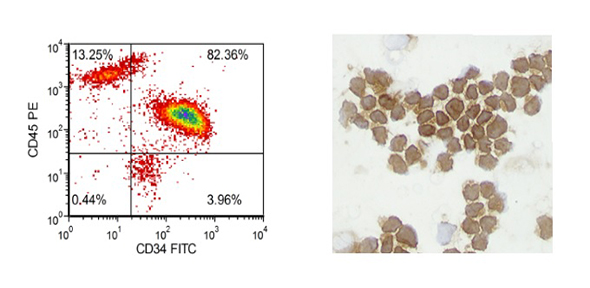Clinical Pathology Service at the Department of Veterinary Medicine
The clinical pathology service is staffed by two board certified senior clinical pathologists, three Senior Clinical Training Scholars (residents, including this role), five laboratory technicians (3.5 FTE) and one administrator. The laboratory receives approximately 10,000 submissions per year, predominantly from within the Queen’s Veterinary School Hospital and its associated clinics and ambulatory services. In addition, the laboratory has a special interest in flow cytometry (one of only two centres in the UK to offer this diagnostic service for small animals) for which it receives samples from clinics across the UK and Europe. Our team work closely with colleagues in anatomical pathology, and attend daily clinical rounds in the Queen’s Veterinary School Hospital where we discuss the submitted cases in detail with the attending clinicians.
Training Programme
Duration
One year in the first instance, renewable (subject to satisfactory progress) for periods of one year up to a total of three years.
Aims of Senior Clinical Training Scholarship (SCTS)
The purpose of the Scholarship is to enable the Scholar to receive a full-time training under the direct supervision of clinical academic members of staff, and to gain the clinical caseload and credentials (including per-reviewed publications) that are prescribed as prerequisites for undertaking the examinations for a postgraduate qualification in clinical pathology (usually the Diploma of the European College of Veterinary Clinical Pathology).
Eligibility
To be eligible for this position we require candidates to have at least 2 years of experience in general practice or to have completed a 1 year rotating internship.
Time allocation
The training programme for the SCTS will be based at the Clinical Pathology Laboratory at the Queen’s Veterinary School Hospital, University of Cambridge. Training will be arranged to meet the current requirements of the European College of Veterinary Clinical Pathologists (ECVCP), the American College of Veterinary Pathologists, and the Royal College of Pathologists. The specific requirements for ECVCP training programmes can be found on the College web site (https://www.esvcp.org/index.php/publications/ecvcp-information-brochure....). The training will be based largely on the clinical pathology caseload of the Queen’s Veterinary School Hospital (QVSH), ancillary clinics of the QVSH (including RSPCA clinic and ambulatory equine and farm animal services) and material submitted by external veterinary practitioners. Experience will be provided in all aspects of clinical pathology. An approved externship of 1 month per year is required by the ECVCP. The Scholar may be required to undertake out-of-hours duties and first opinion practice duties as necessary. There will be a total of 10 weeks study leave a year. Study objectives will be discussed with the supervisor and will be set out for each year of the scholarship.
In the first year there will be close and continual supervision by senior clinicians. In the second year, the SCTS will be encouraged to become more independent, depending on progress. Advice and supervision will still be provided, but the aim is to achieve a good level of independence by the end of year three.
Supervision will be provided by:
Tim Williams MA VetMB PhD AFHEA FRCPath DipECVCP MRCVS
University Senior Lecturer in Clinical Pathology (ECVCP Residency Programme Director)
Cassia Hare MA VetMB DipACVP (Clin Path) MRCVS
Principal Clinical Pathololgist
Teaching and Continuing Professional Development
The SCTS will be expected to attend the day release courses organised by the University of Cambridge on teaching and learning in higher education. These courses deal with education methods (lectures, seminars and small group teaching etc.) for lecturers involved in tertiary education. There are also computer and audio-visual courses available.
Scholars have to prepare and attend presentations given by and to members of the Department for critical appraisal by colleagues in the Hospital.
Research Programme
The SCTS will be required to undertake a research project in an area of clinical pathology of his/her choice and will be expected to prepare and publish at least two scientific papers in a refereed journal during the programme. One of the items maybe a case report.
Undergraduate Teaching Participation
The SCTS will be expected to give small group seminars and to assist in clinical pathology practical classes and final year rotation.
Examinations
The qualifications that the applicant will study for are the Diploma of the European College of Veterinary Clinical Pathology (DipECVCP) and/or Diploma of the American College of Veterinary Pathology (DipACVP) and/or Fellowship of the Royal College of Pathologists (FRCPath).

